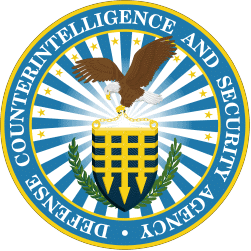Many jobs in the federal government, especially in the defense industry, require individuals to have a government-issued security clearance. As a federal contractor for the Department of Defense (DoD), JT4 supports government efforts, and, as such, most positions available with the company require employees to obtain and maintain a security clearance.
Clearances explained

Types of clearances
Three levels of DoD security clearances are commonly issued. The level issued depends on the sensitivity of the information that an individual may need to access.
- Confidential
- Secret
- Top Secret
Eligibility
Disqualifiers
Several criteria may disqualify you from obtaining a security clearance, including but not limited to the following:
- Non-U.S. Citizenship
- Involvement in illegal drug use (according to federal law)
- A judgment of mental incompetence by a qualified health professional
- Prior revocation of a security clearance for security reasons
Delays
The following are examples of issues that may slow down the process of obtaining a security clearance:
- Dual citizenship
- Significant foreign national contacts, such as immediate family members who are not U.S. citizens
- Property or financial holdings in foreign countries
- Felony convictions
- A history of financial problems, such as accounts in collection or bankruptcy
- Failure to file federal tax returns
Application and process
A security clearance cannot be obtained on your own. A government entity or cleared contractor sponsor, like JT4, is required. Once you accept an offer with JT4 and begin in-processing, the JT4 Security Team will provide instructions regarding the online application form and fingerprinting process. You will be required to disclose the following personal information:
- Residential history
- Educational background
- Information on immediate relatives
- International travel history
- Employment records
- Police records
- Foreign contacts and overseas property
- Drug and alcohol use
- Mental state
- Financial history
- Litigation activities
- Organizational activity that could be harmful to the United States
- Prior security clearances
After filing your form, a federal investigator will be assigned to your application. A thorough investigation will ensue, which may include interviews with your relatives, friends and neighbors. The amount of time this takes may vary, depending upon the type of clearance and circumstances associated with an individual’s background.
Frequently asked questions
How do I obtain a security clearance?
What does having a security clearance really mean?
I already have a security clearance. Can I transfer it to JT4?
If you already have a current security clearance at the same level and with the same federal agency (e.g., DoD), JT4 Security can take ownership of the clearance. Also, a reciprocity request can be made if the clearance is from the Department of Energy. When a clearance is inactivated due to switching jobs or leaving the military, it must be reinstated within 24 months of the departure date or it is no longer valid. If the clearance is outside the last investigation date, an update will be required.
